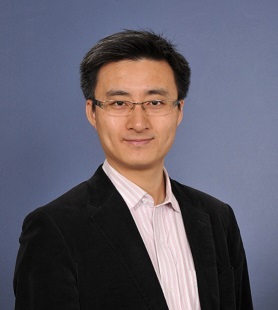Abstract: The use of Finite Element (FE) simulation software to adequately predict the outcome of sheet metal forming processes is crucial to enhancing the efficiency and lowering the development time of such processes, whilst reducing costs involved in trial-and-error prototyping. Recent focus on the substitution of steel components with aluminum alloy alternatives in the automotive and aerospace sectors has increased the need to simulate the forming behavior of such alloys for ever more complex component geometries. However these alloys, and in particular their high strength variants, exhibit limited formability at room temperature, and high temperature manufacturing technologies have been developed to form them. Consequently, advanced constitutive models are required to reflect the associated temperature and strain rate effects. Simulating such behavior is computationally very expensive using conventional FE simulation techniques.
This seminarpresents a novel Knowledge Based Cloud FE (KBC-FE) simulation technique that combines advanced material and friction models with conventional FE simulations in an efficient manner thus enhancing the capability of commercial simulation software packages. The application of these methods is demonstrated through a number of example case studies, such as: the prediction of a material’s forming limit under hot stamping conditions, and the tool life prediction under multi-cycle loading conditions etc.
Biography:

Dr LiLiang Wang is a lecturerin Mechanics of Materials Division, Departmentof Mechanical Engineering, Imperial College London, UK.He is the Executive Co-Director for an industrial funded research Centre and a joint laboratory(CRRC-Sifang Imperial Research Centre for transportation manufacturing technologies; CALT - Imperial Advanced Structure Manufacturing Technology Laboratory), which are fully sponsored byindustry.Dr Wang's research is focused on the advanced metal forming technologies, including material and process modelling for metal forming processes, tribology in metal forming and the development of novel metal forming technologies.Dr Wang is leading a Metal forming group at Imperial College providing R&D services for the aerospace, aeronautics,automotive and materials processing industries. He is supervising 6 PDRAs and 13 PhD students. He has supervised 26BEng, MEng and MSc student projects (One of the projects won the Arup project prize in 2016). Dr Wangpublished over 70 research papers and 5 patents. He created the ‘interactive friction theories’ and used in predicting the evolution of friction coefficientand the life of coating or lubricantin metal formingprocesses. This work has been recognisedinternationally, leading to the award of the best paper prizeinthe 4th International Conference on New Forming Technology (ICNFT2015).
